On Saturday November 9 2019, Yenching Academy of Peking University embarked on its annual week-long field study to the Sichuan and Chongqing. Now in its 5th iteration, the field study course traveled for the first time to Sichuan and Chongqing after four successive annual trips to Xi'an. This year, besides touring Chengdu and the neighboring areas, scholars also visited the city of Dujianyan, located just northwest of Chengdu, as well as Dazu on the outskirts of Chongqing. The week-long field study course has become an integral part of the Yenching experience for first-year scholars, not only because it provides a prime opportunity for scholars to engage firsthand with China's culture, history, and modern development, but is also the only time during the year in which the entire cohort of scholars can travel and bond together.
The Sichuan and Chongqing field study trip was led by three professors, namely Fan Shiming, Associate Dean of Yenching Academy, Lu Yang, Yenching Academy's Director of Graduate Studies, and Cheng Lesong, Professor of Department of Philosophy and of Religious Studies at Peking University. Each professor delivered lectures on their topic of expertise, such as Daoism and the history of Buddhism in China.
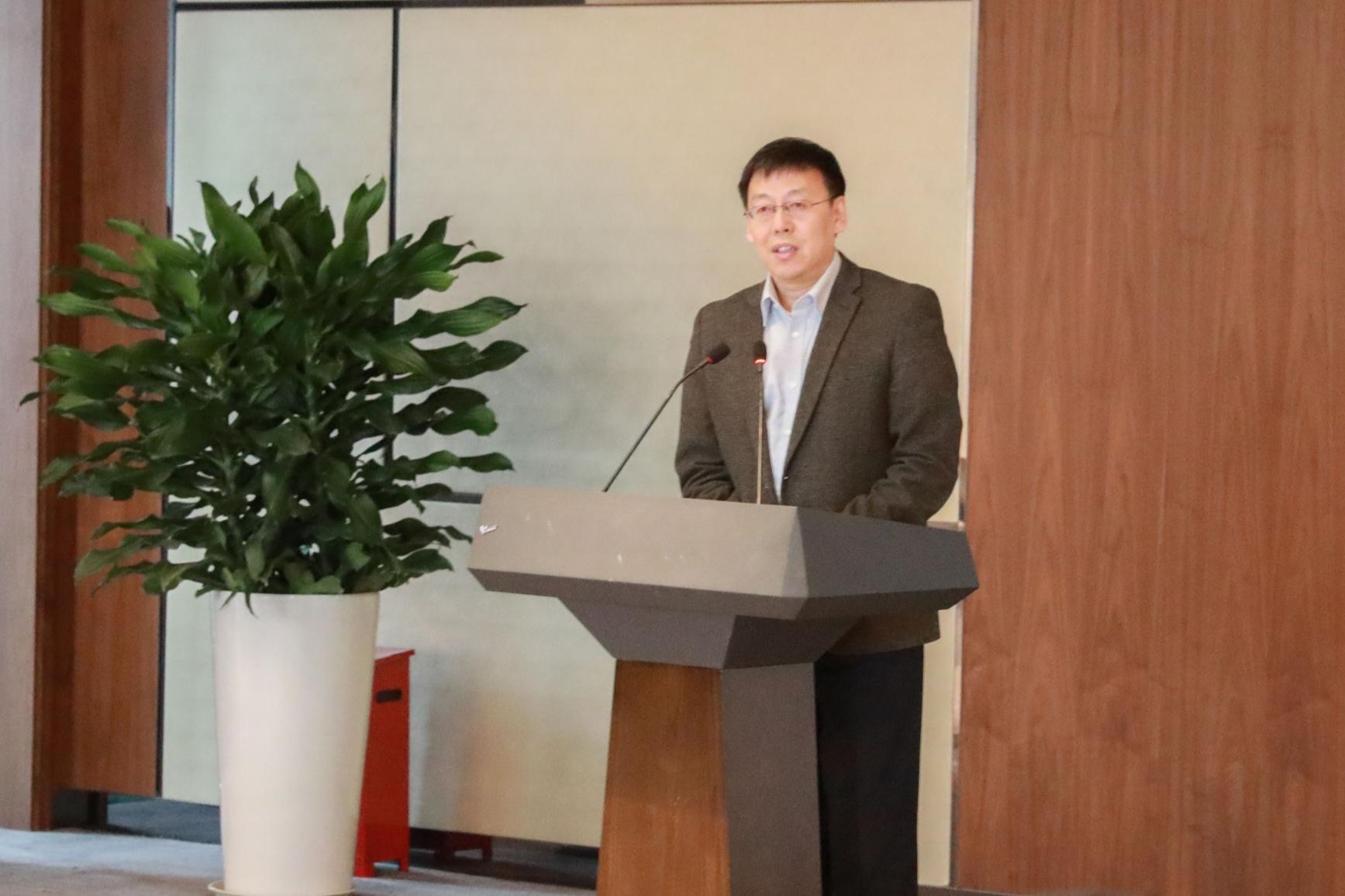
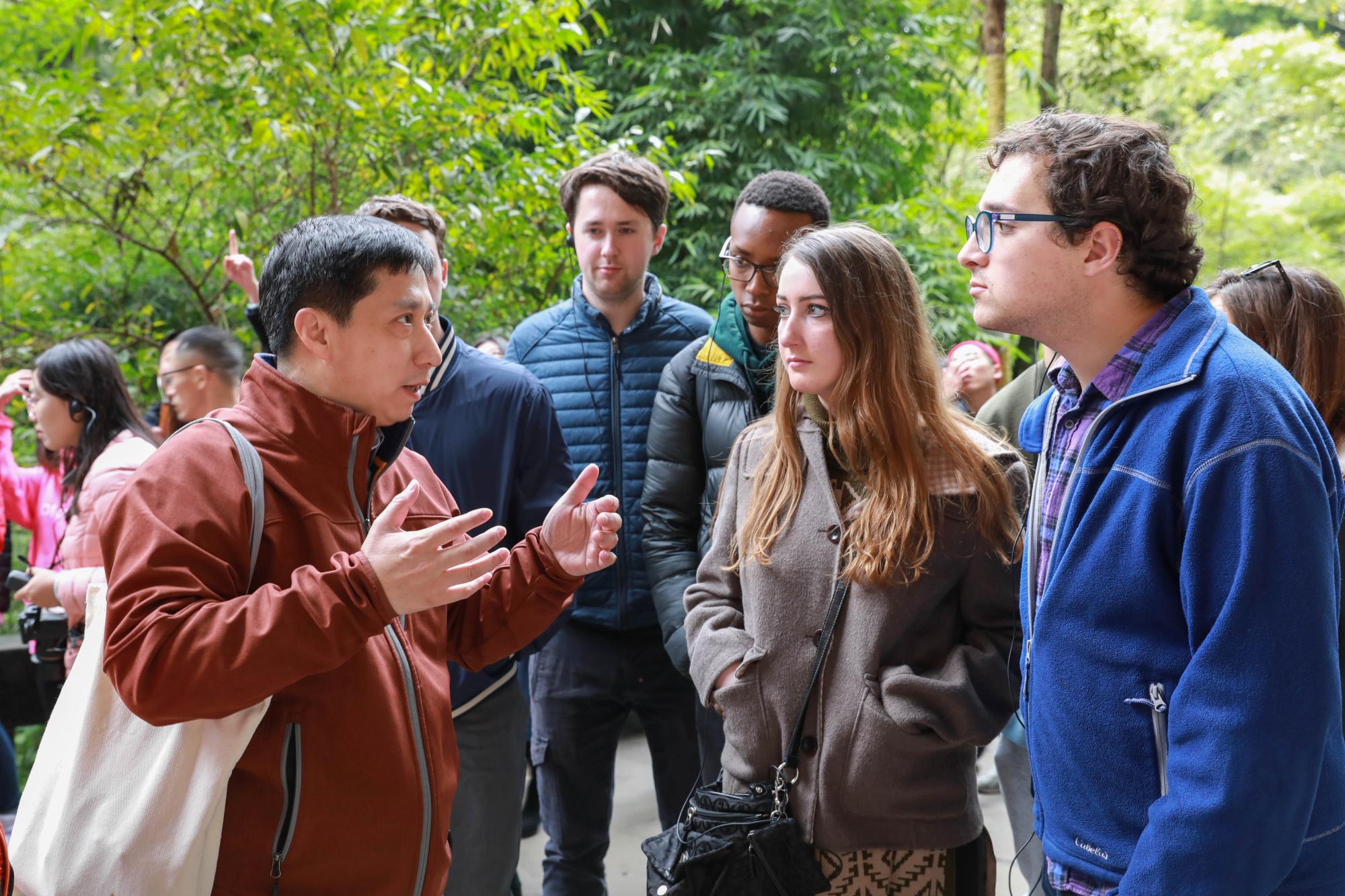
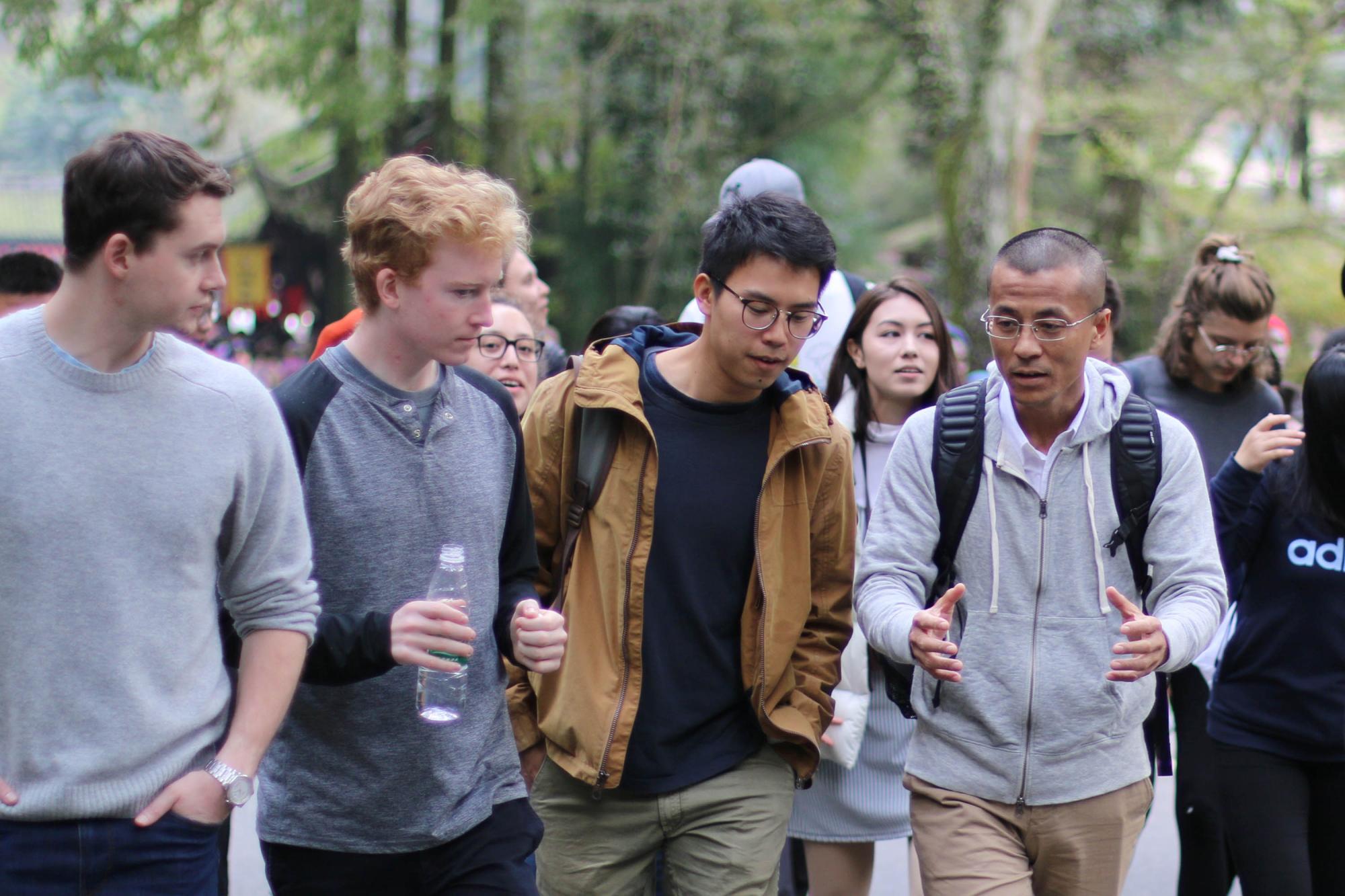
The morning after arriving in Dujiangyan after a long train journey from Beijing, scholars headed to the Dujiangyan Giant Panda Base, where they attended a lecture on current giant panda conservation efforts and observed giant pandas in their protected enclosures. Scholars were able to observe giant pandas interacting with each other and eating bamboo. The panda base offered a wide variety of opportunities to see giant pandas in different types of man-made habitats.
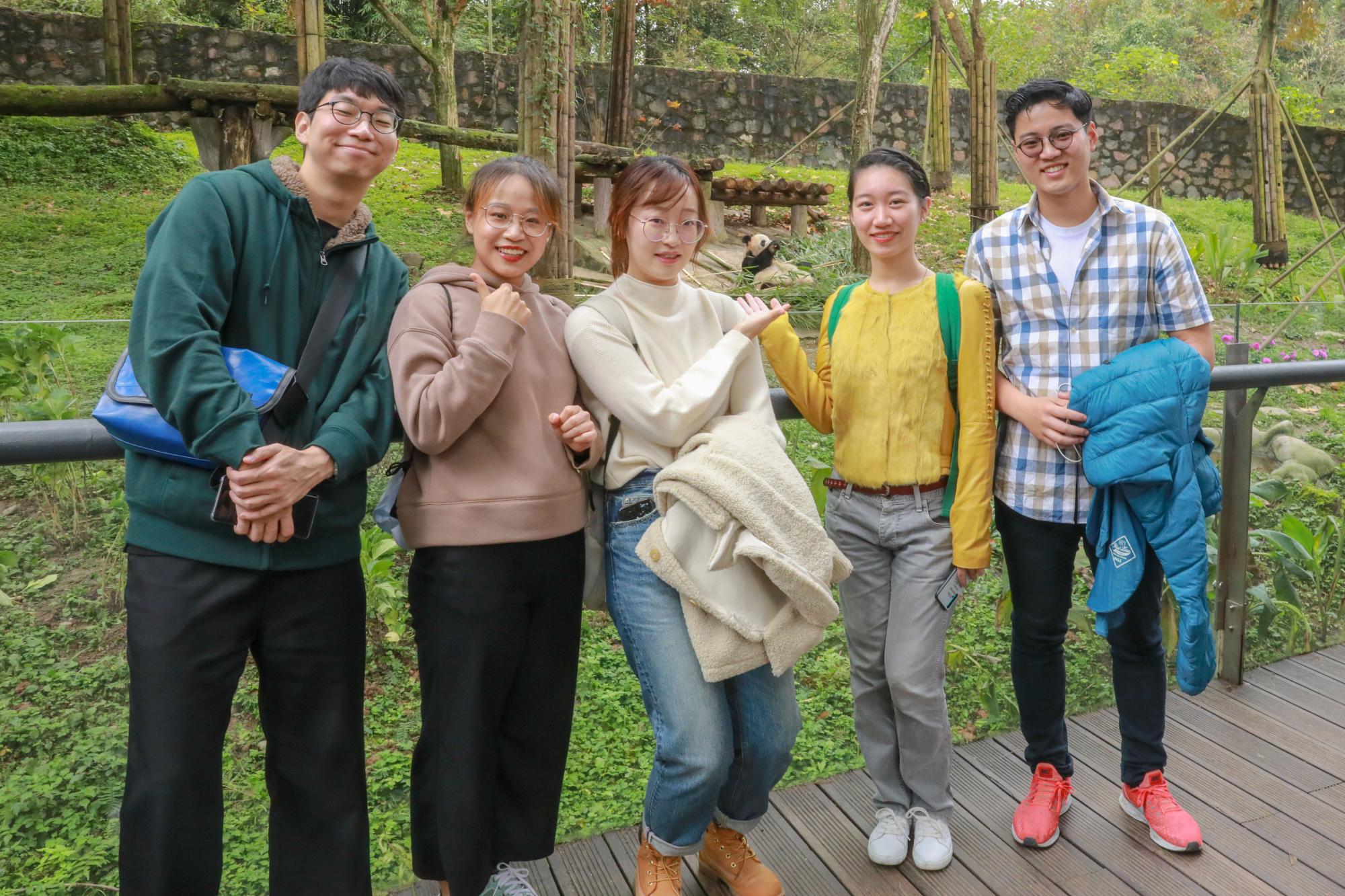
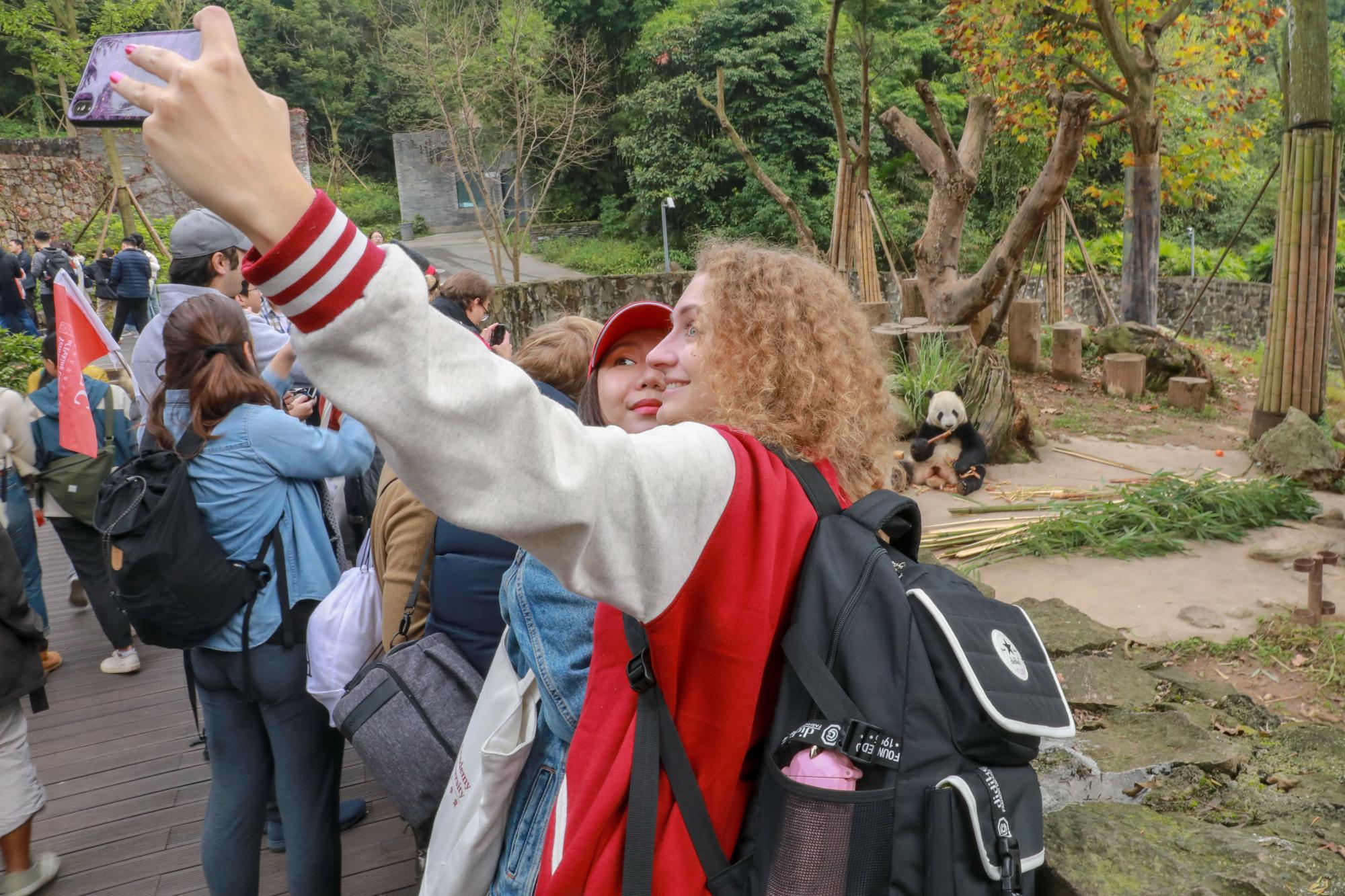
In the afternoon, scholars hiked up Mount Qingcheng, one of the birthplaces of Daoism and considered by the Daoist mythology to be the site of the Yellow Emperor's studies with Ning Fengzi. As the center of the Doaist religion, the mountain is host to many temples. Scholars were able to interact with members of the active Daoist clergy in the temples as they ascended the mountain.
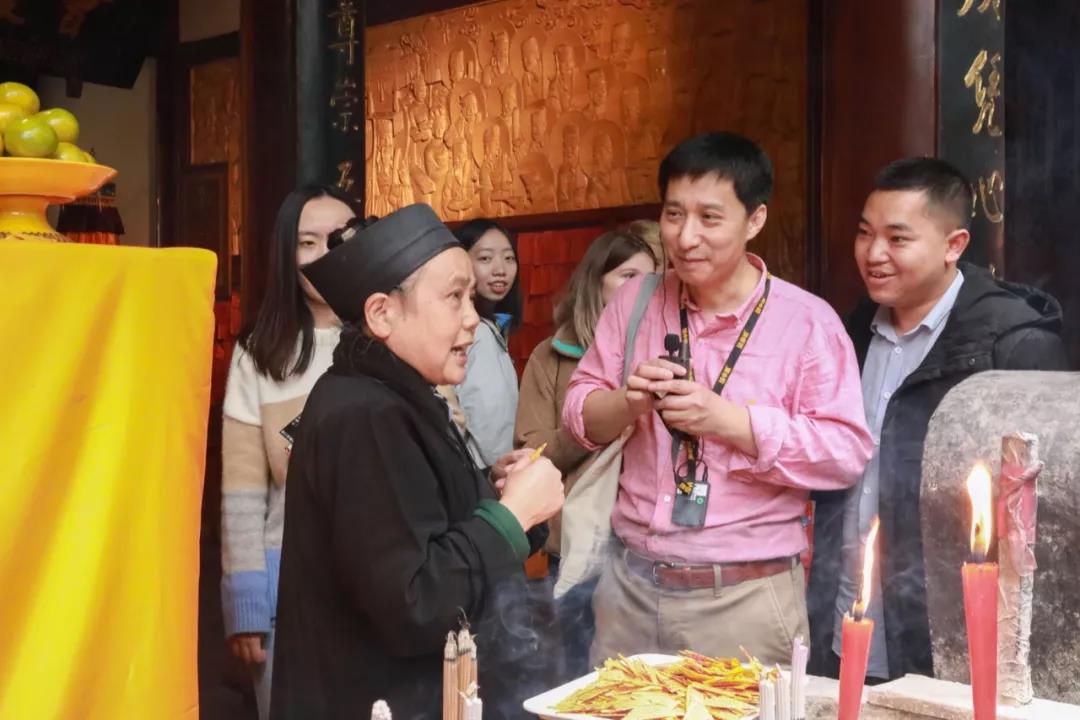

Scholars departed Dujiangyan on the second morning, but not before they visited the Dujiangyan, a UNESCO World Heritage Site and the ancient irrigation system for which the town is named. Scholars learned about the innovation of bamboo baskets filled with stones known as zhulong, held in place by wooden tripods known as macha, which enabled the construction of the levees at Dujiangyan the 3rd century BC which channelled and divided the Min River to irrigate the Chengdu plain. By visiting the Dujiangyan, scholars could observe how this irrigation system, still in use today, transformed agriculture by ending floods and providing a stable supply of water for the region. In the afternoon before arriving in Chengdu, scholars also visited the Chengdu International Railway Port, a hub for international cargo shipping to export Sichuan-based manufactures to the wider Eurasian continent.

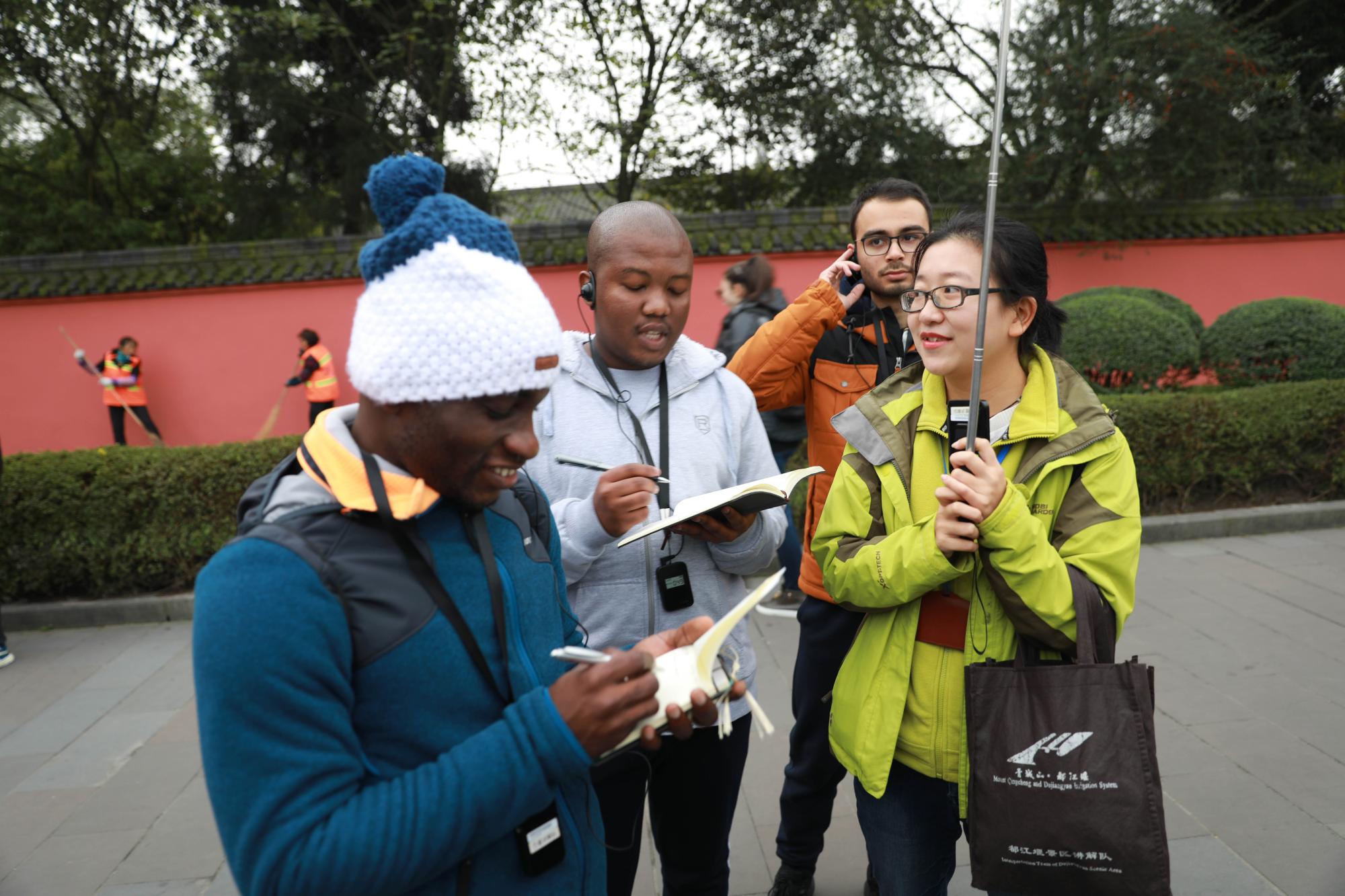
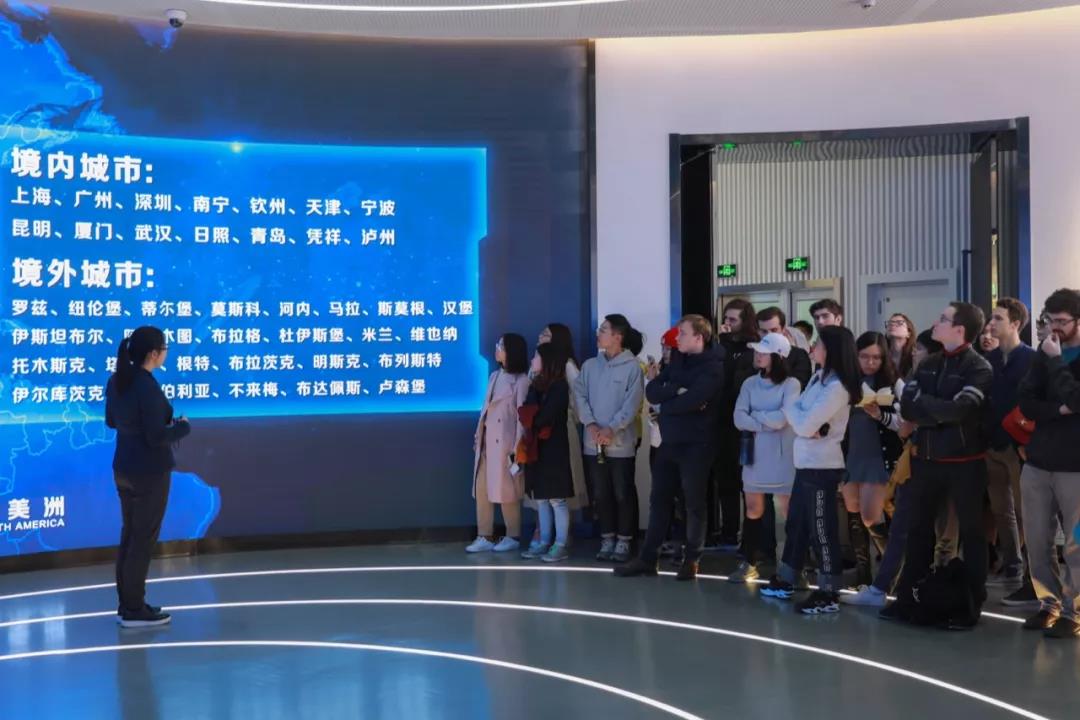
On Tuesday, their first full day in Chengdu, scholars visited two museums in the area. The first was Sanxingdui Museum located in Guanghan, home to a Bronze Age archaeological site which holds a large collection of bronze artifacts from the ancient kingdom of Shu. While the Shu kingdom was largely contemporaneous with the Shang dynasty, the Shu developed a different method of bronze-making from the Shang, thereby challenging the traditional narrative of Chinese civilization spreading from the central plain of the Yellow River and leading Chinese archaeologists to acknowledge multiple ancient centers of innovation in the beginnings of Chinese civilization. During their morning at the Sanxingdui Museum, scholars observed impressive bronze heads and sculptures with gold foil masks, as well as life-size sculptures of humans and trees which were integral to Shu belief systems about the afterlife. In the afternoon, scholars visited the Chengdu Museum for a scavenger hunt and the Wuhou Shrine, the most influential museum of Three Kingdoms relics in China.
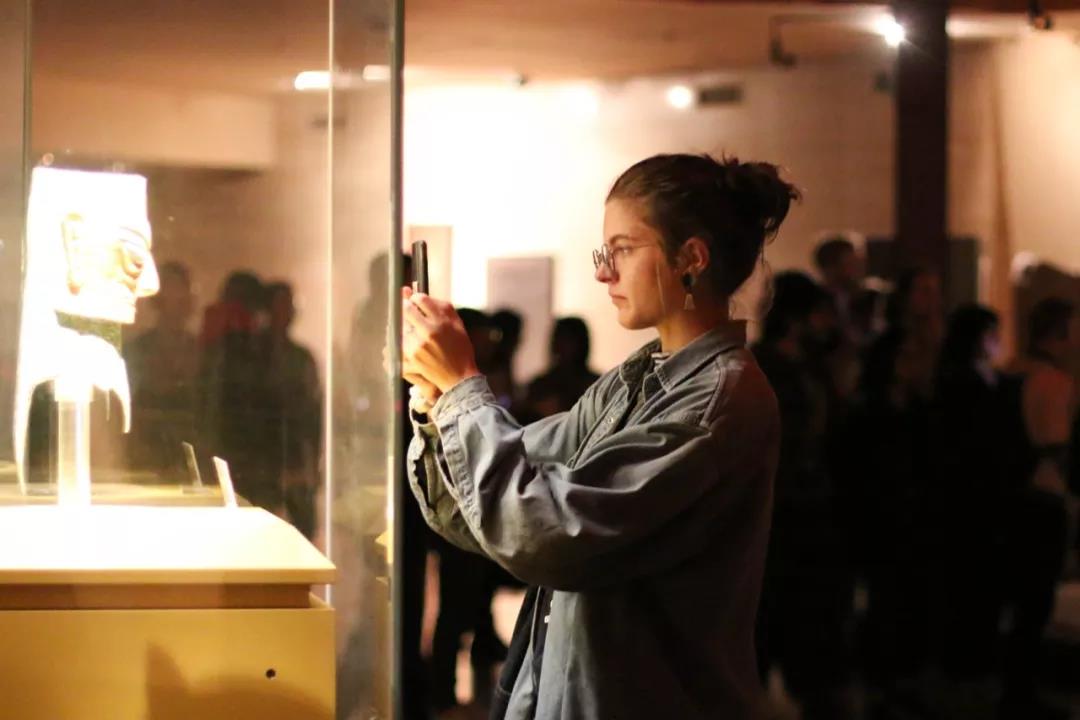
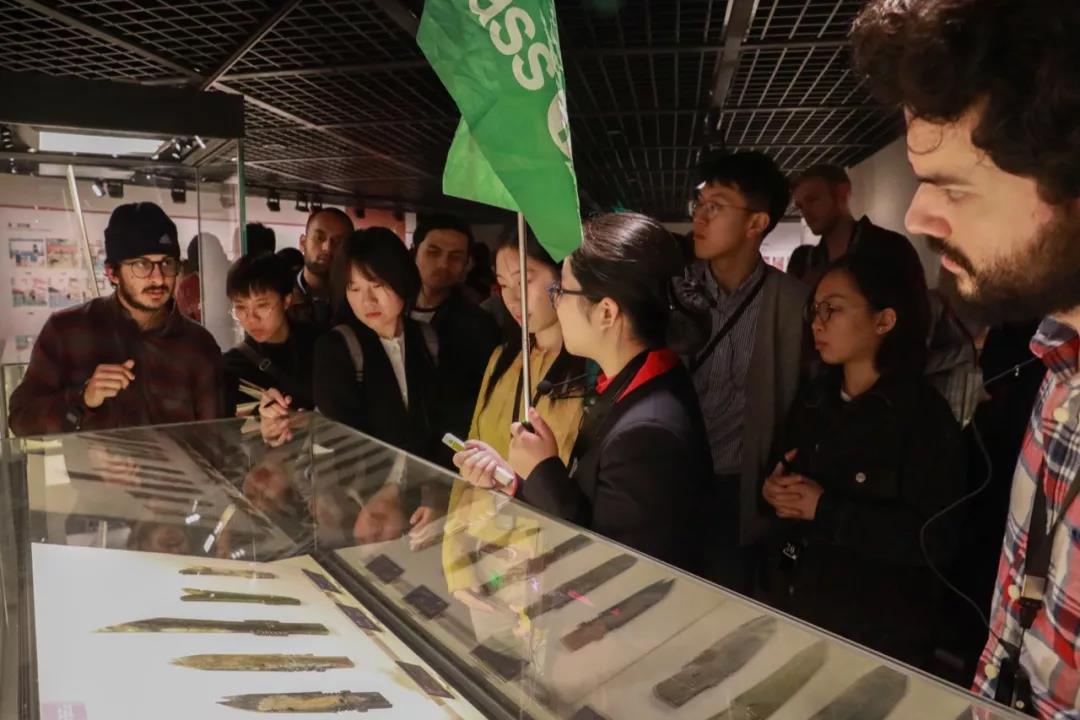
On the third day, scholars visited the Dazu Rock Carvings, located in the rural suburbs of Chongqing. The carvings date back as far as the 7th century AD, depicting and influenced by Buddhist, Confucian and Daoist beliefs. Some are in rock-cut cave shrines, in the usual Chinese Buddhist style, but many others are rock reliefs carved into the open rock faces. Considered one of the greatest Buddhist rock carving sites in China along with the Mogao Caves in Dunhuang, the Longmen Grottoes near Luoyang, and the Yungang Grottoes near Datong, the Dazu Rock Carvings are distinguished from other sites of Buddhist pilgrimage and aristocratic patronage by their focus on explaining Buddhist beliefs to address the mundane concerns of lay people, such as illness, childbirth, marriage, and death. Regarding her day at the Dazu Rock Carvings, scholar Carter W.Y. Cheng remarked, “Historians spend most of their time working indoors. Our day-to-day routine is to evaluate sources and reconstruct narratives from inside libraries, archives, or even at our own desks. But going outside to feel and touch the weight of history is equally important. This guided tour to the astounding Dazu Rock Carvings served exactly this purpose.” In the evening, scholars settled back down in Chengdu for a traditional Sichuan hot pot dinner, enjoying a wide selection of meats and vegetables after a long day traveling to and from Dazu.
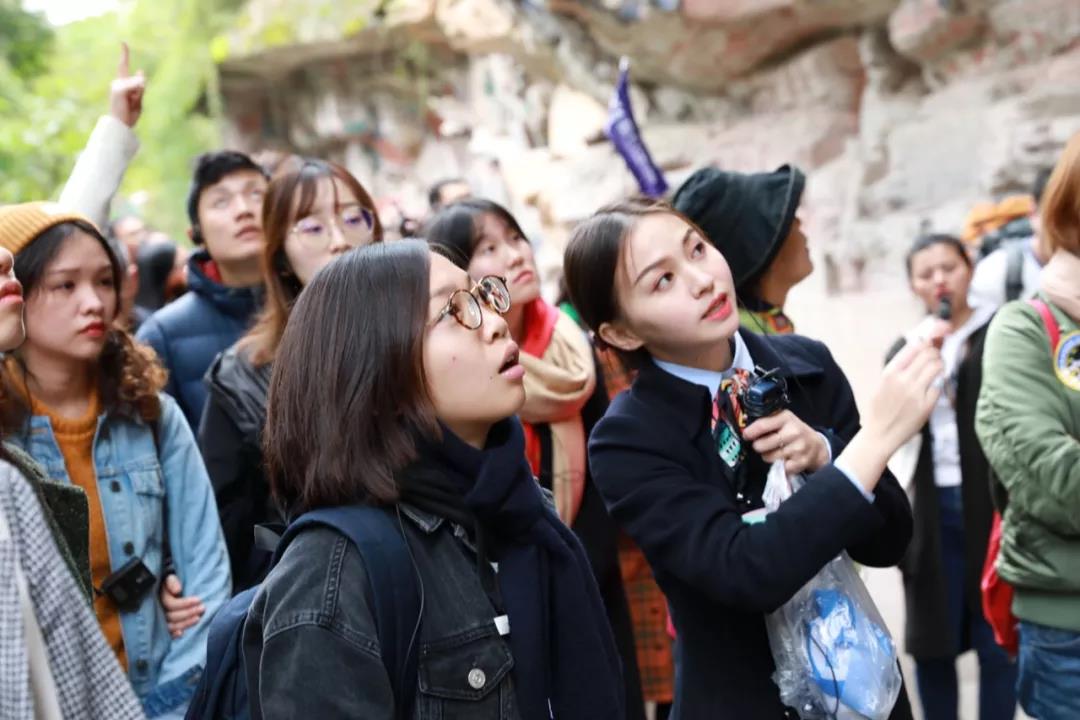
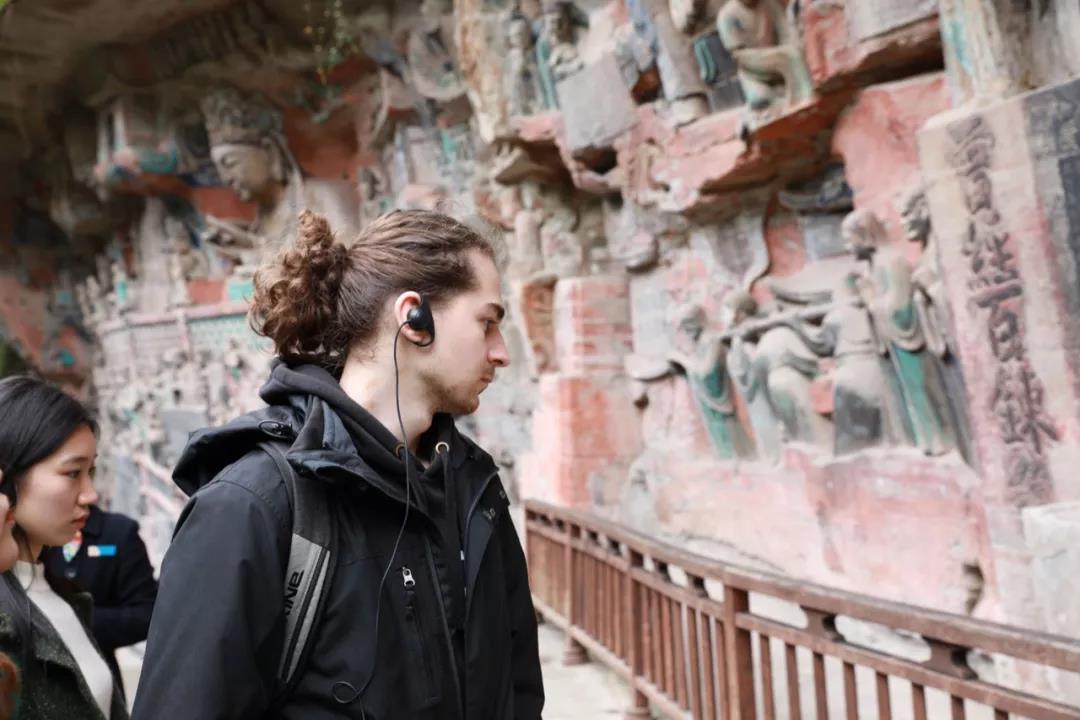
On the fourth day, scholars visited the Centre for China-Europe Cooperation (CCEC) in Chengdu High-tech Zone. The CCEC promotes trade, investment and technical cooperation between the EU and China, and is actively supported by the European Commission, the Ministry of Science and Technology of China, the Sichuan Provincial People's Government, the Chengdu Municipal People's Government and the Management Committee of Chengdu Hi-tech Industrial Development Zone. It started operations in Chengdu High-tech Zone in 2017 and has become the symbol of international cooperation in Chengdu. The center hosts and assists more than 40 institutions and enterprises from European countries and countries along the "Belt and Road.” After a morning lecture on current enterprises at the CCEC, scholars spent their afternoon observing some of the ventures developed collaboratively at the CCEC, such as drone technologies and an earthquake early warning system site.
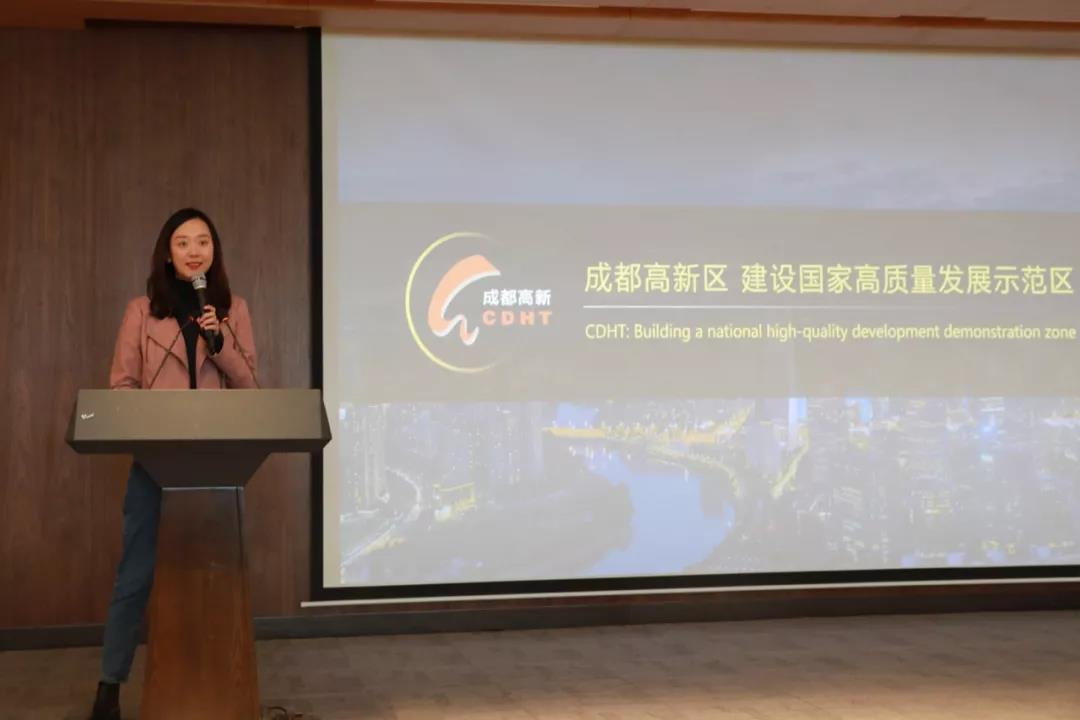
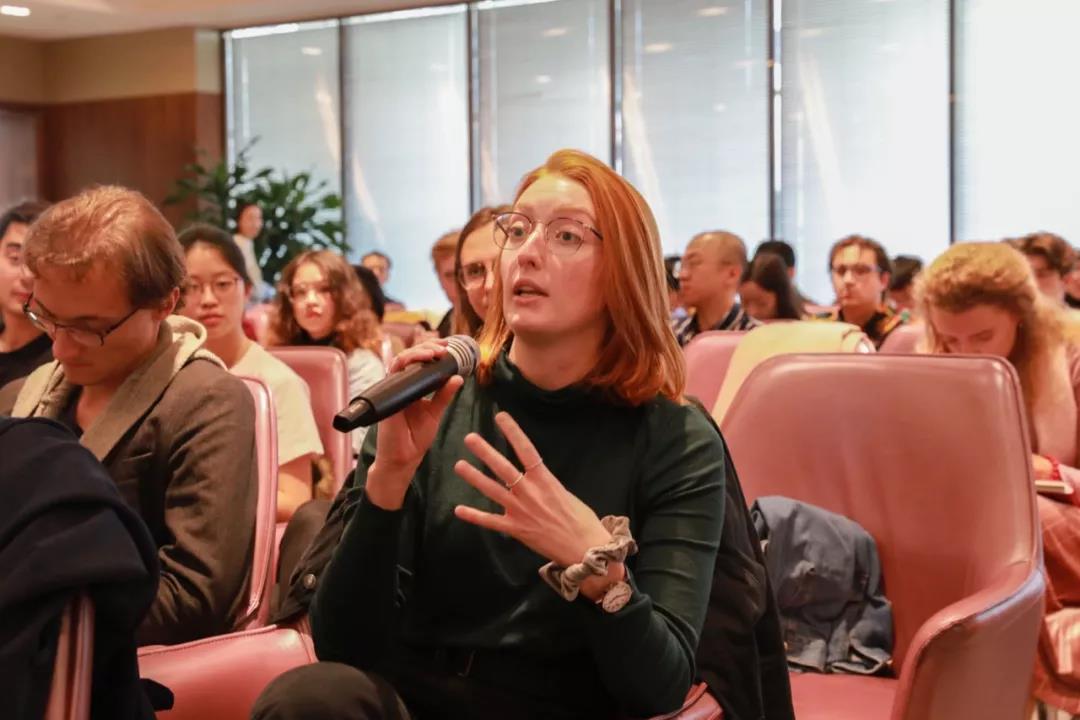
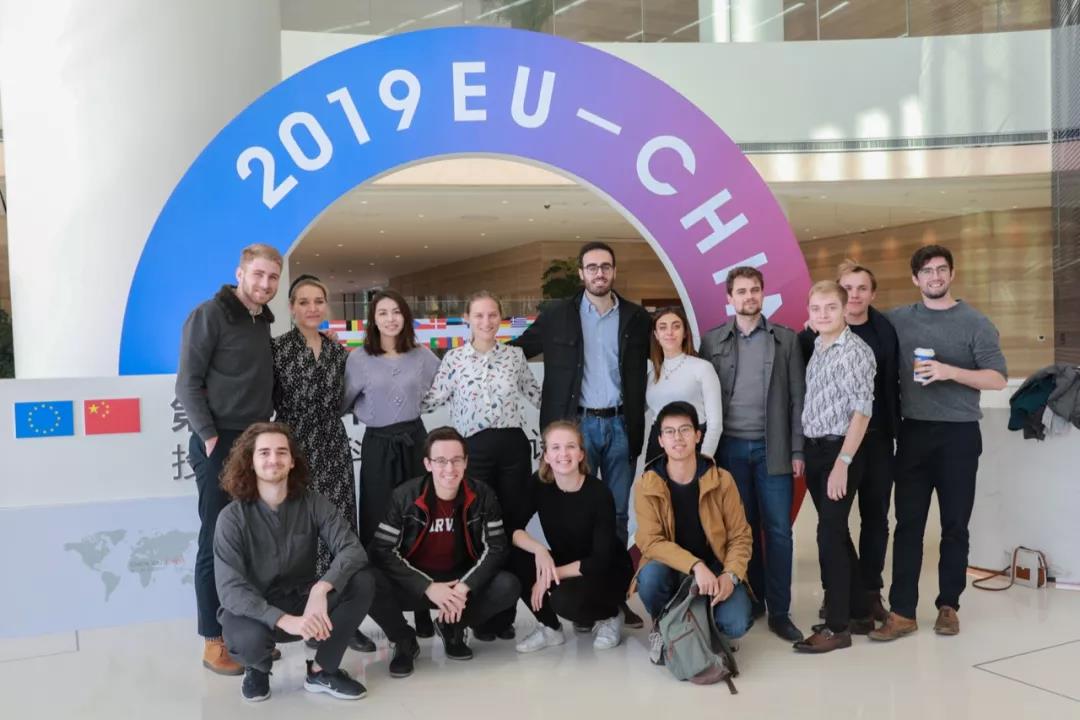
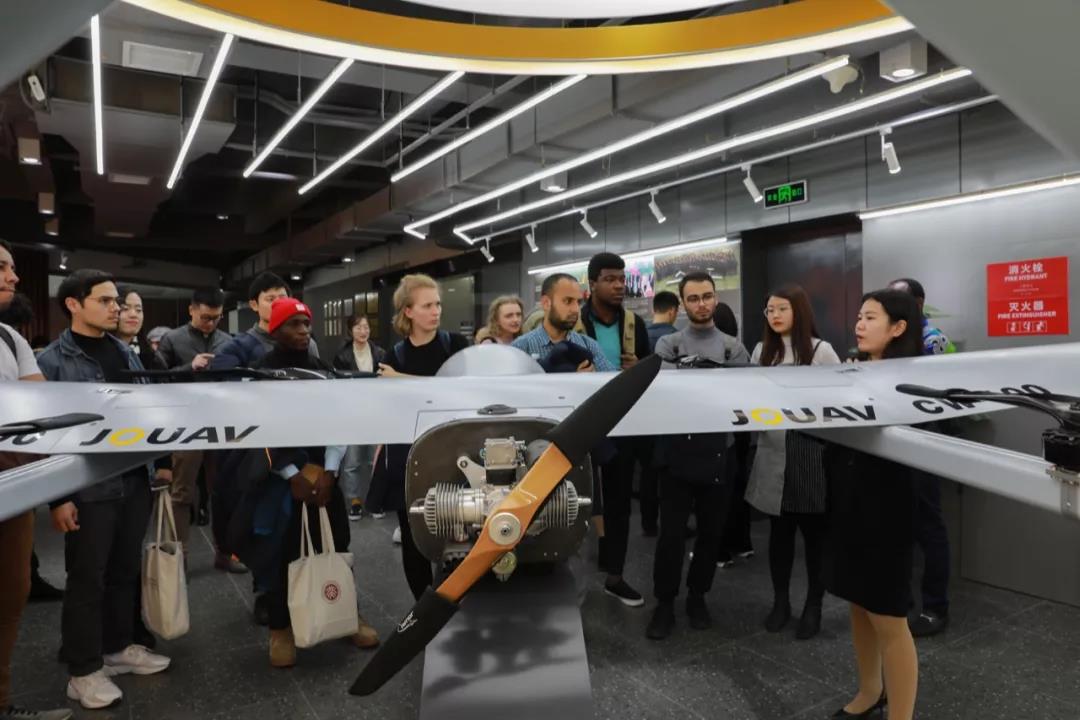
In the evening, they attended a lecture by Peter Hessler, a renowned American writer and journalist based in Chengdu who has lived extensively in Sichuan and in Egypt. The author of several renowned books on China and Egypt, namely “River Town: Two Years on the Yangtze” and “The Buried: An Archaeology of the Egyptian Revolution,” Mr. Hessler spoke to Scholars about his experience interviewing Chinese lingerie merchants in Egypt and his time covering the archaeological damage which occurred during Egypt’s recent political revolution.
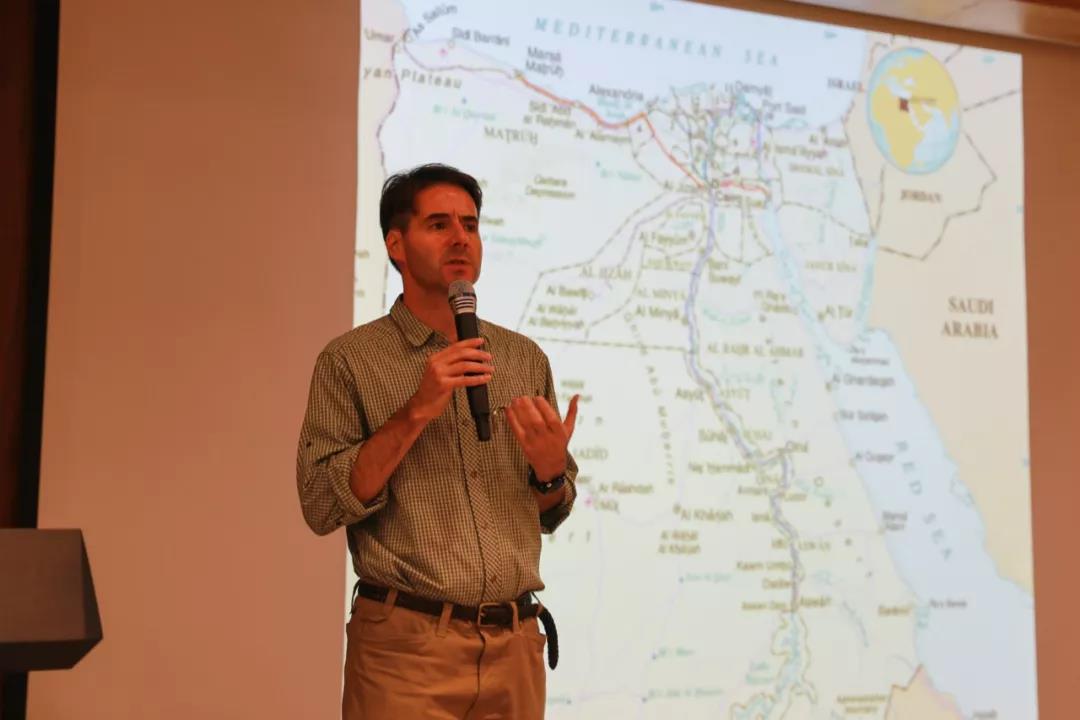
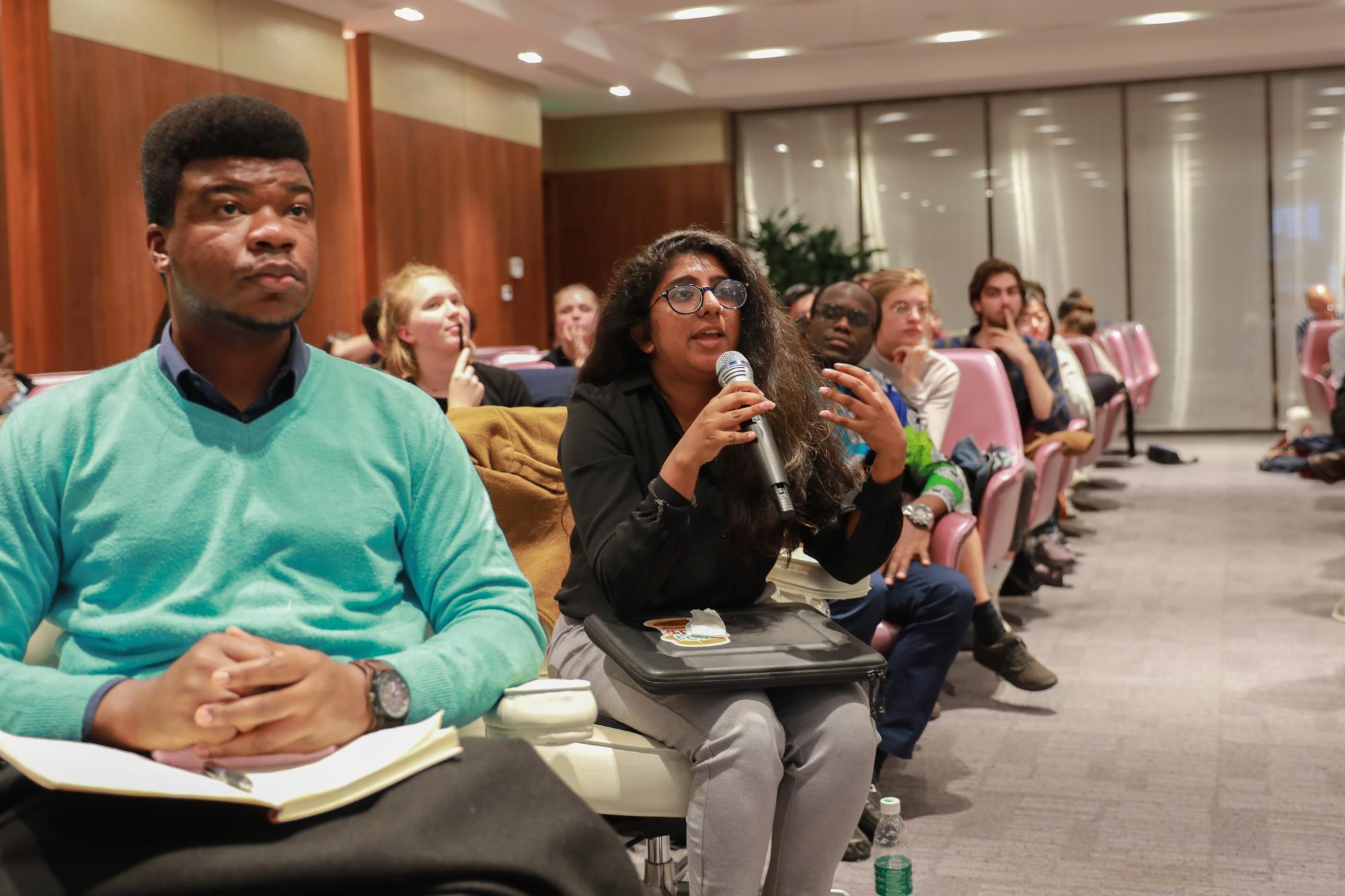
After a week-long tour of one of China's richest and most dynamic regional centers, on Friday morning Yenching Scholars concluded their enriching visit to Sichuan and Chongqing with group presentations and a traditional Sichuan opera and mask-changing performance at a Chengdu teahouse. They returned home to Peking University on Saturday, November 16 with much to reflect on. Having gained a deeper understanding of one of China's most distinctive regions, its culture, and its modern development, scholars will be able to relate what they experienced firsthand in Sichuan and Chongqing to their studies in class. Whether that is studying art history or international cooperation in development, this field study has been fruitful in enabling academic and abstract ideas come to life.
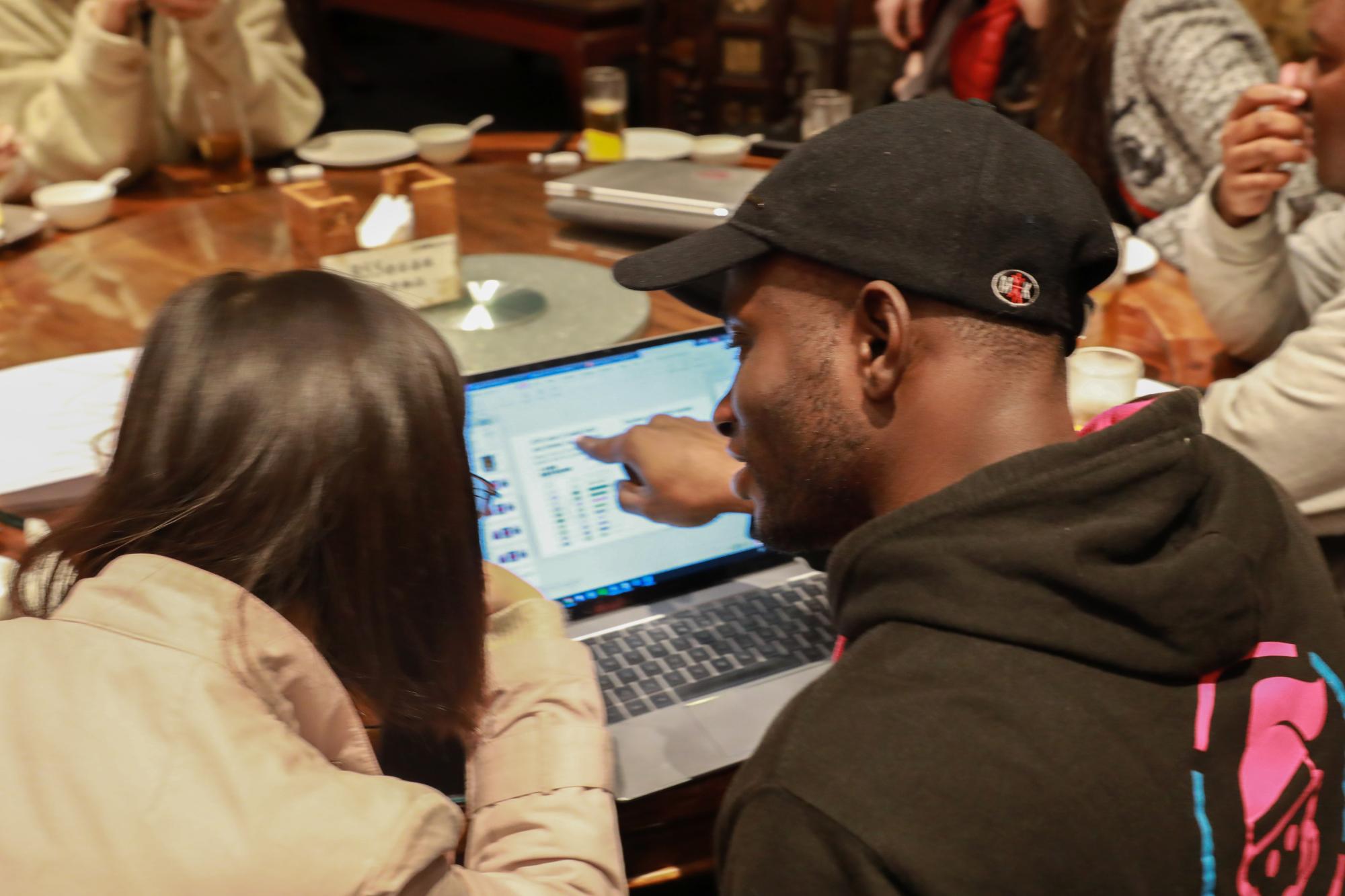
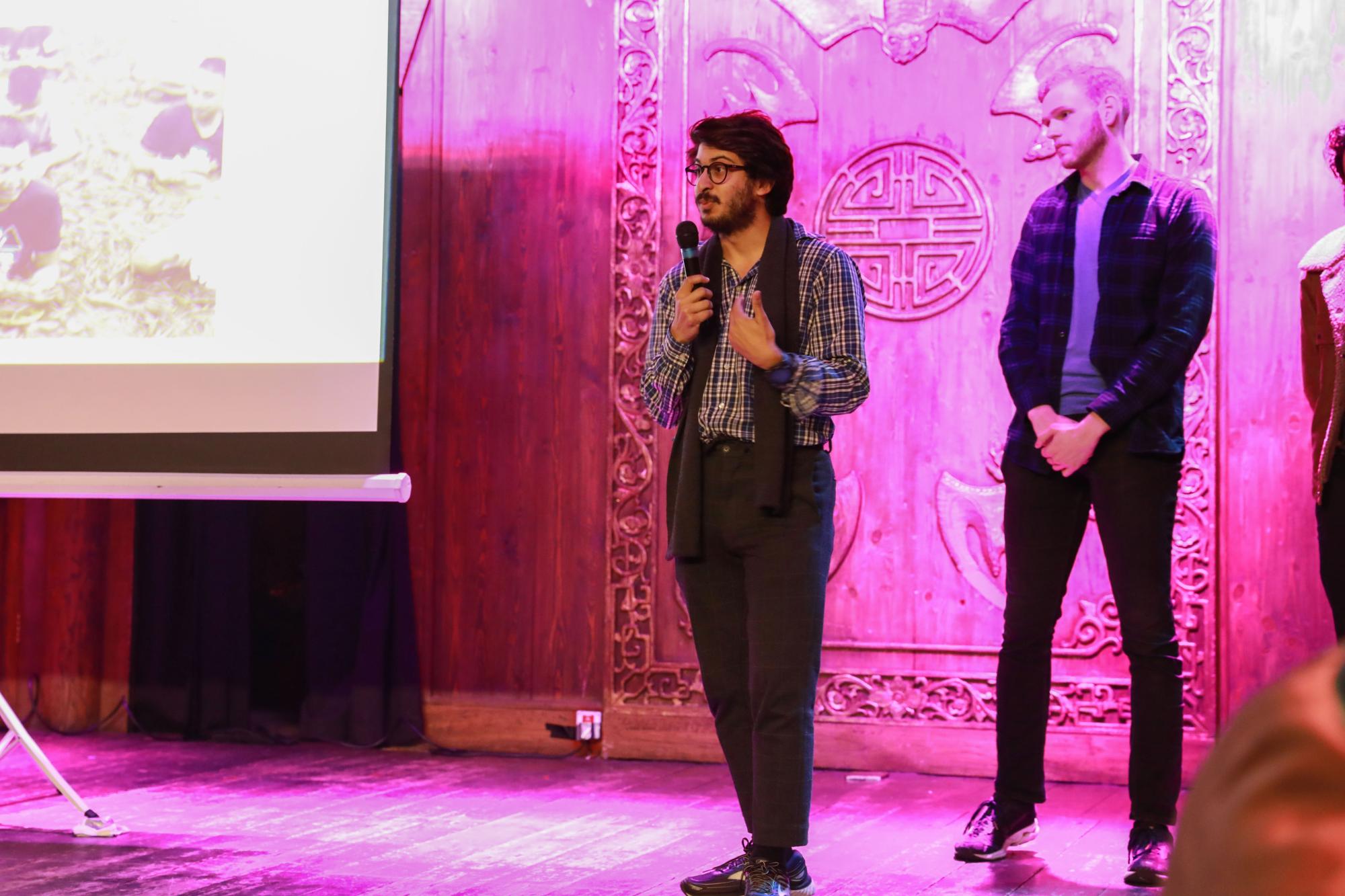
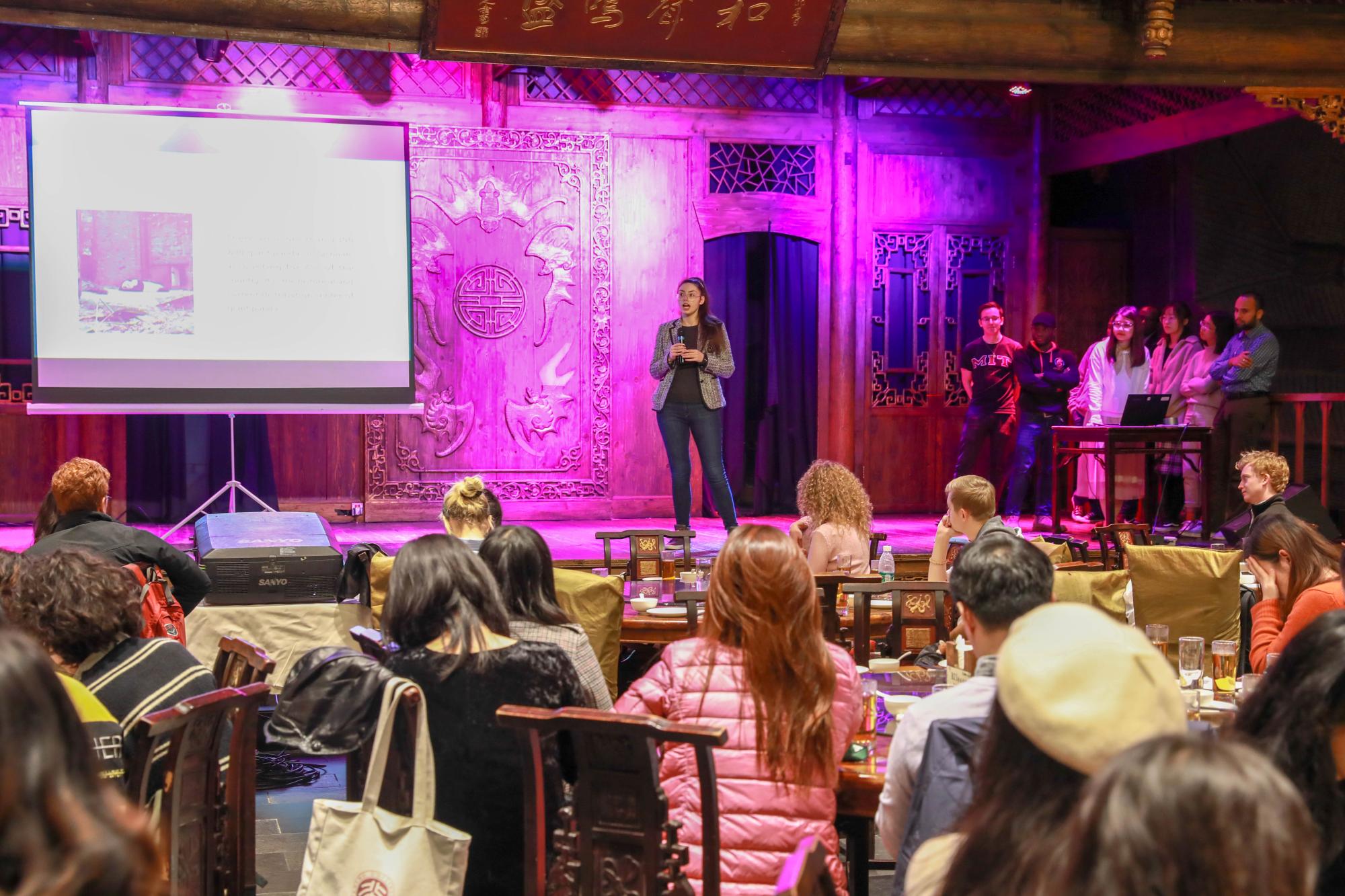
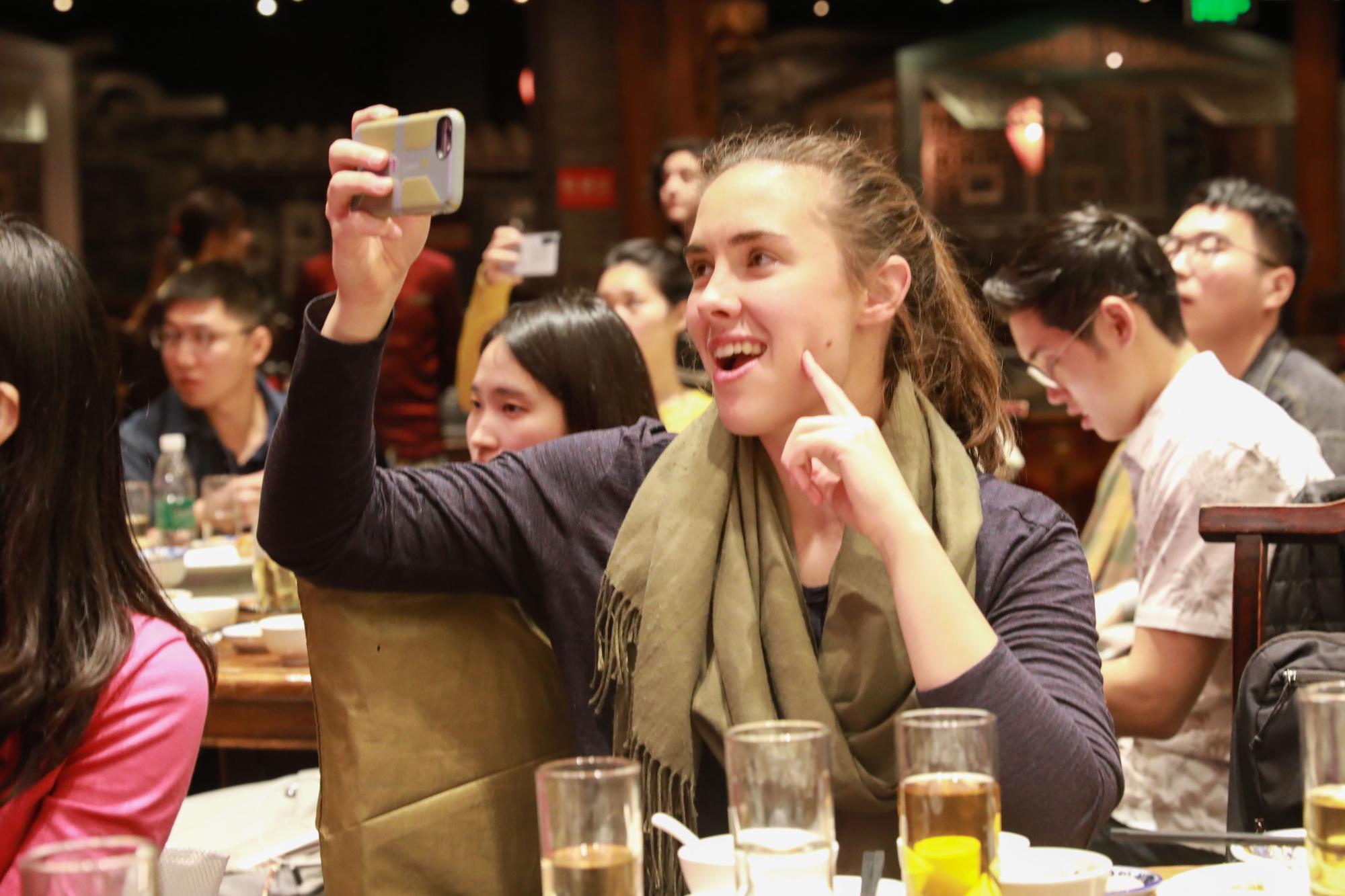
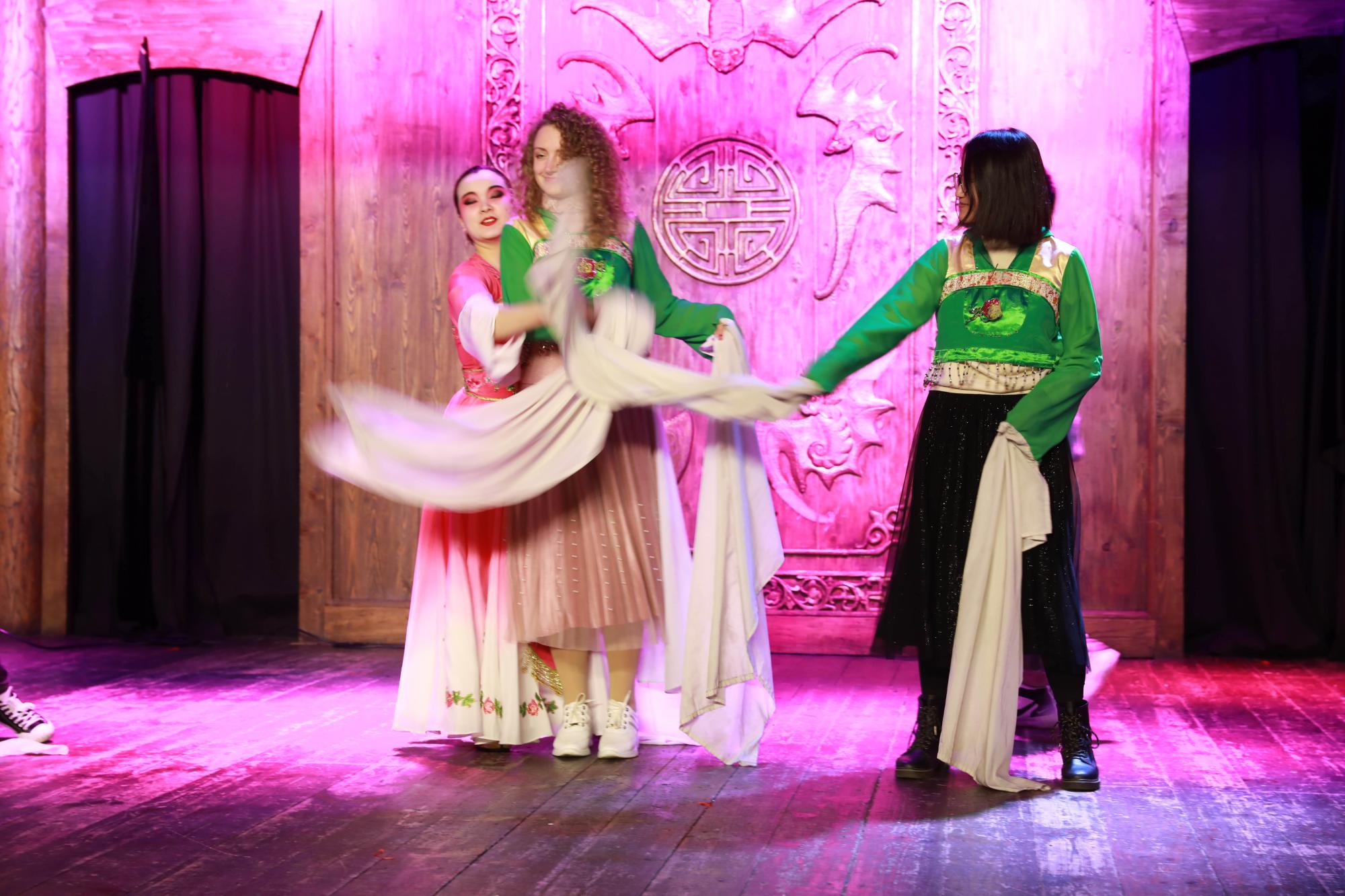
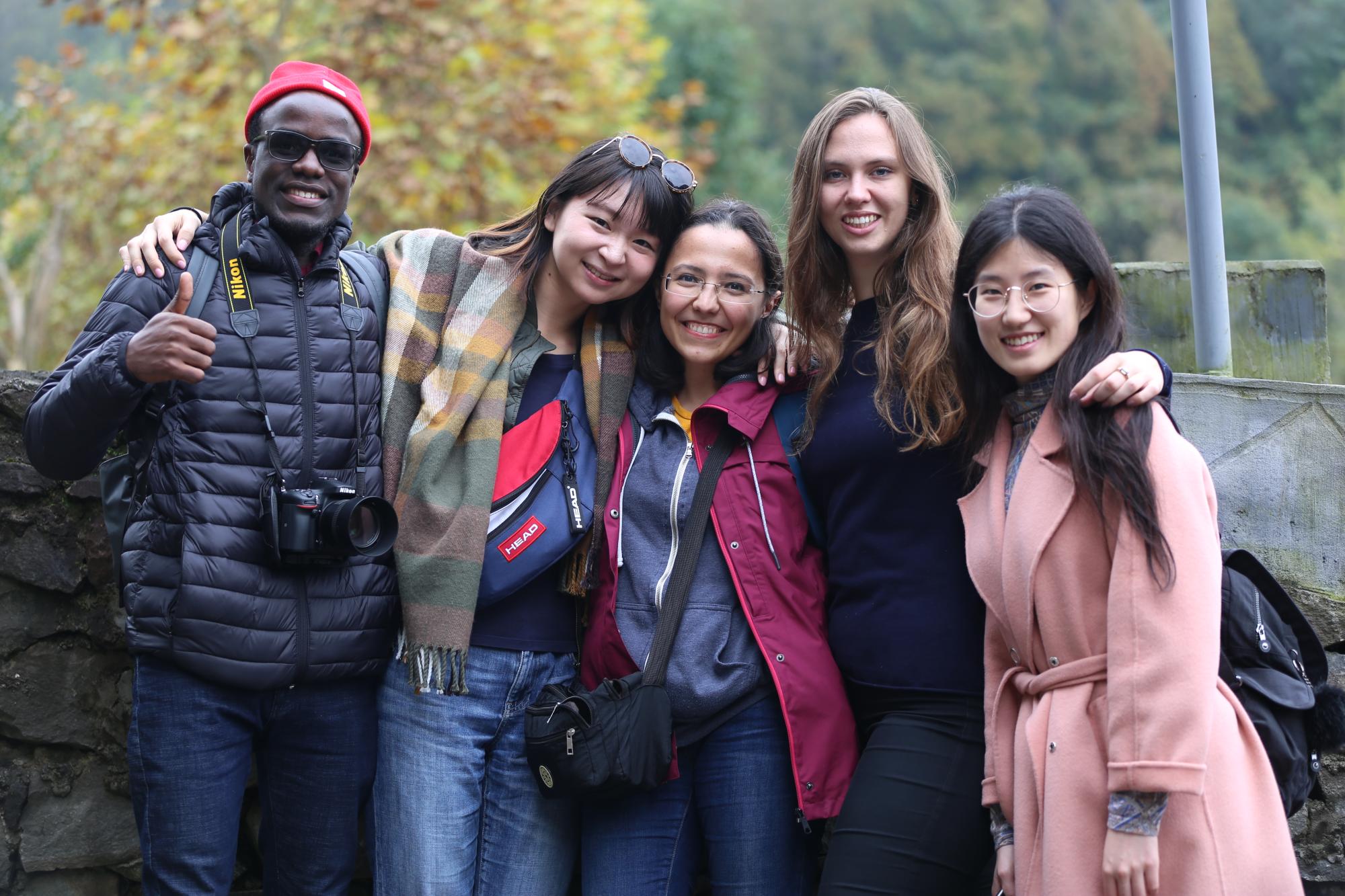
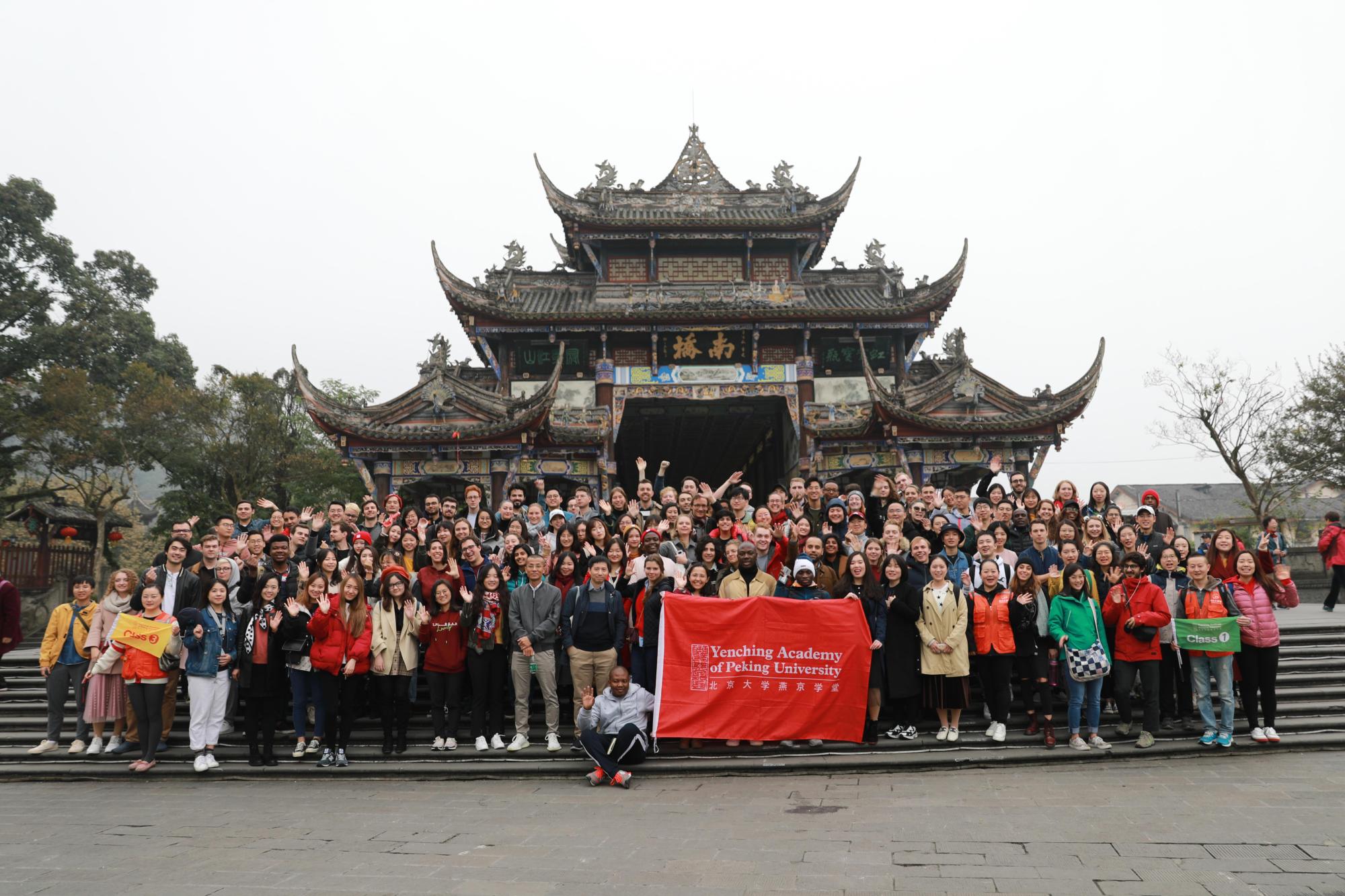
by Michael Lee